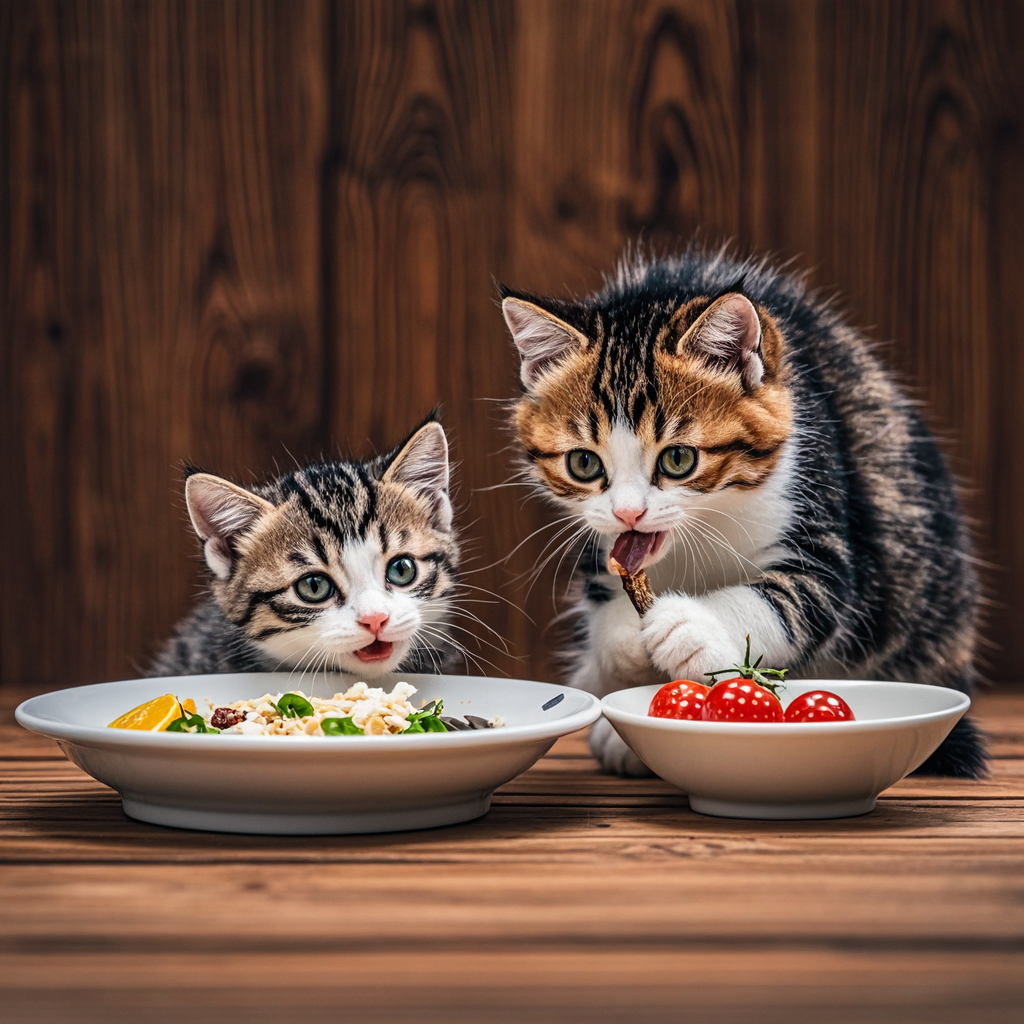Feeding kittens requires special attention and care to ensure they grow up healthy and strong. From understanding their nutritional needs to establishing a feeding routine, here are some important considerations to keep in mind when feeding your young feline friend.
1. Understand Nutritional Requirements
Kittens have different nutritional needs compared to adult cats. Their growing bodies require a diet rich in specific nutrients to support their development.
- Protein: Kittens need a higher protein intake for muscle growth and energy. Look for kitten food with a high protein content, primarily from animal sources.
- Fats: Essential fatty acids, particularly DHA, are crucial for brain and vision development.
- Vitamins and Minerals: Ensure the food contains adequate vitamins and minerals like calcium and phosphorus for bone growth and overall health.
- Moisture: Wet food can help ensure kittens stay hydrated, which is essential for their health.
2. Choose the Right Food
Selecting the appropriate food for your kitten is crucial. Here are some options to consider:
- Commercial Kitten Food: High-quality commercial kitten foods are formulated to meet the specific nutritional needs of growing kittens. Choose reputable brands with a good track record.
- Wet vs. Dry Food: Wet food is beneficial for hydration and is often more palatable for kittens. Dry food helps maintain dental health. A combination of both can provide balanced nutrition.
- Avoid Human Food: Human food often lacks the necessary nutrients for kittens and can be harmful. Stick to specially formulated kitten food.
3. Establish a Feeding Schedule
Consistency is key when it comes to feeding kittens. Establish a regular feeding schedule to help regulate their digestion and ensure they receive adequate nutrition.
- Frequency: Kittens require frequent meals due to their small stomachs and high energy needs. Feed them at least 3-4 times a day until they are about six months old.
- Portion Control: Follow the feeding guidelines on the food packaging, adjusting portions based on your kitten’s weight and activity level.
- Transitioning: When transitioning to new food, do so gradually over a week to avoid digestive upset.
4. Monitor Growth and Health
Regular monitoring of your kitten’s growth and health is essential to ensure they are thriving.
- Weight Checks: Weigh your kitten regularly to ensure they are gaining weight steadily. Consult your veterinarian if you notice any significant weight loss or gain.
- Veterinary Visits: Schedule regular veterinary check-ups to monitor your kitten’s health and development. Discuss their diet and any necessary adjustments with your vet.
5. Provide Clean Water
Hydration is vital for kittens. Ensure they have access to fresh, clean water at all times.
- Water Bowls: Use shallow, wide bowls to make it easier for kittens to drink. Clean the bowls daily to prevent contamination.
- Wet Food Hydration: Wet food can contribute to their overall water intake, but it should not replace the need for fresh water.
6. Avoid Harmful Foods
Certain foods can be toxic to kittens and should be avoided entirely.
- Toxic Foods: Avoid feeding kittens chocolate, onions, garlic, grapes, raisins, and caffeinated beverages, as these can be harmful or even fatal.
- Bones and Raw Food: Avoid giving kittens bones, which can splinter and cause injuries, and raw food, which can carry harmful bacteria.
7. Monitor Eating Habits
Pay attention to your kitten’s eating habits, as changes can indicate health issues.
- Appetite Changes: A sudden loss of appetite or overeating can signal underlying health problems. Consult your veterinarian if you notice any significant changes.
- Eating Speed: Encourage slow eating to prevent choking or digestive issues. Puzzle feeders can help slow down fast eaters.
Conclusion
Feeding kittens requires careful attention to their nutritional needs, feeding schedules, and overall health. By providing a balanced diet, regular meals, and clean water, you can ensure your kitten grows up healthy and strong. Always consult with your veterinarian for personalized advice and adjustments to your kitten’s diet as they grow.
